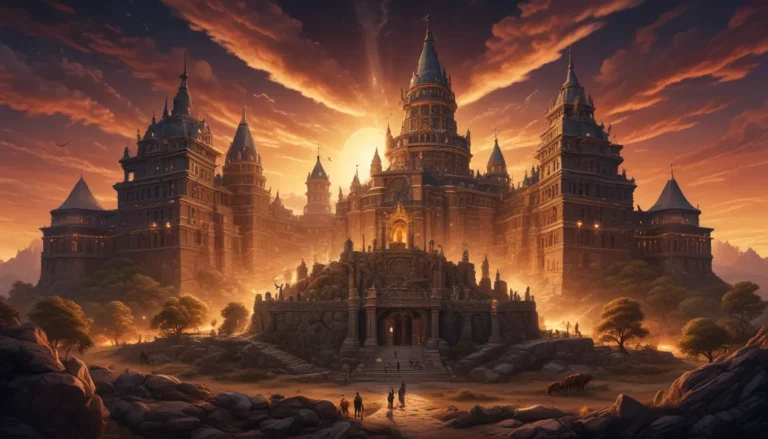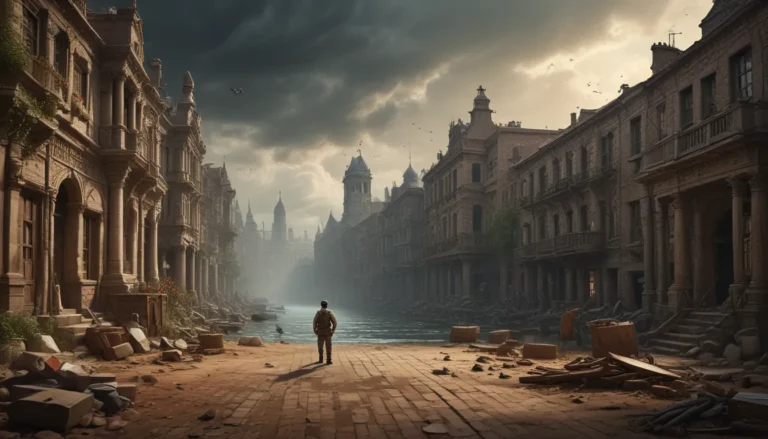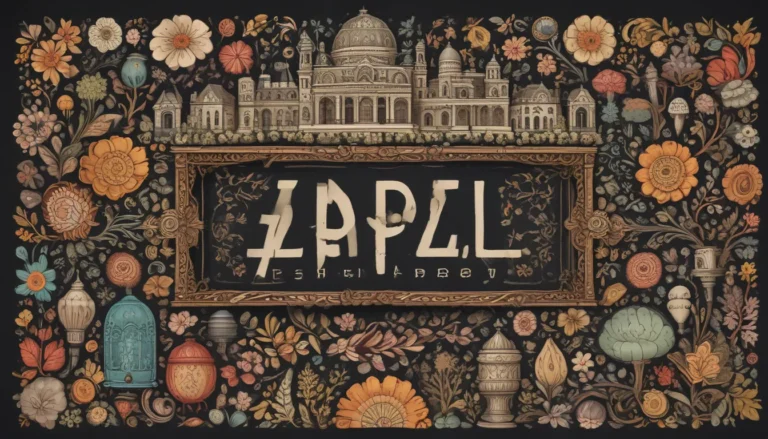The images in our articles may not match the content exactly. They are used to grab your attention, not to show the exact details in the text. The images complement the text but do not replace it.
Welcome to a fascinating journey through time as we unravel the significant events that have shaped December 31st into a day of historical importance. From groundbreaking discoveries to political milestones and cultural phenomena, this date has witnessed a myriad of impactful moments that have left an indelible mark on our world. Join us as we delve into the depths of history to uncover the intriguing facts and extraordinary achievements that have defined December 31st.
Reflecting on Human Progress
December 31st serves as a day of reflection on human progress, marking the end of eras and the birth of groundbreaking ideas. It is a time to celebrate the transformative power of time, as we look back on the events that have shaped our past and continue to influence our future. From the transfer of the Panama Canal to the launch of the Human Genome Project, December 31st has been a witness to monumental milestones that showcase the resilience and ingenuity of humanity.
Historical Events: Milestones in Time
1999: The Transfer of the Panama Canal
On December 31st, 1999, the United States handed over control of the Panama Canal to Panama, marking a significant moment in the history of international relations and trade. The transfer symbolized a shift in power and sovereignty, highlighting the importance of global cooperation and diplomacy in managing vital waterways.
1879: Thomas Edison’s Electric Light Bulb
In 1879, Thomas Edison demonstrated his electric incandescent light bulb for the first time on December 31st, revolutionizing the way we illuminate our world. The invention of the light bulb paved the way for widespread electrification and enhanced the quality of life for billions of people around the globe.
1946: End of World War II
President Harry S. Truman officially proclaimed the end of World War II on December 31st, 1946, bringing a close to one of the most devastating conflicts in human history. The declaration signified a new era of peace and rebuilding, setting the stage for global recovery and reconciliation.
1907: First New Year’s Eve Celebration in Times Square
On December 31st, 1907, the first New Year’s Eve celebration was held in Times Square, New York City, marking the beginning of a beloved tradition that continues to captivate millions of people worldwide. The iconic ball drop has become a symbol of hope, renewal, and unity as people gather to welcome the new year.
1923: Big Ben Chimes Broadcasted on Radio
The chimes of Big Ben in London were broadcasted for the first time on radio on December 31st, 1923, bringing the iconic sound of the clock tower to a wider audience. The broadcast symbolized the power of technology to connect people across great distances and create shared experiences.
Scientific Breakthroughs: Exploring the Unknown
1993: Comet Shoemaker-Levy 9 Collides with Jupiter
The Hubble Space Telescope observed Comet Shoemaker-Levy 9 colliding with Jupiter on December 31st, 1993, providing valuable insights into the dynamics of our solar system. The event showcased the importance of space exploration and scientific discovery in expanding our understanding of the universe.
1990: Launch of the Human Genome Project
In 1990, the Human Genome Project was officially launched on December 31st, marking a historic milestone in the field of genetics and molecular biology. The project revolutionized our knowledge of the human genome and laid the foundation for advancements in personalized medicine and genetic research.
1968: First Successful Heart Transplant
On December 31st, 1968, the first successful heart transplant took place in Cape Town, South Africa, marking a monumental achievement in the field of medicine and organ transplantation. The groundbreaking surgery offered hope to countless patients suffering from heart disease and paved the way for future advancements in transplant surgery.
1995: Discovery of the First Exoplanet
The discovery of the first exoplanet, 51 Pegasi b, was announced on December 31st, 1995, opening a new chapter in the exploration of planets beyond our solar system. The identification of exoplanets has deepened our understanding of planetary systems and the potential for extraterrestrial life in the universe.
1672: Isaac Newton’s Theory of Light and Color
On December 31st, 1672, Isaac Newton presented his theory of light and color, laying the foundation for modern optics and our understanding of the behavior of light. Newton’s groundbreaking work revolutionized the field of physics and established him as one of the greatest scientists in history.
Political Milestones: Shaping the World Stage
1991: End of the Soviet Union
On December 31st, 1991, the Soviet Union officially ceased to exist, marking the end of the Cold War and the beginning of a new era in global politics. The dissolution of the Soviet Union had far-reaching implications for geopolitics and international relations, reshaping the power dynamics of the 20th century.
1978: Diplomatic Relations with China
The United States reestablished diplomatic relations with China on December 31st, 1978, in a historic move that set the stage for normalized relations between the two global superpowers. The diplomatic thaw signaled a shift towards greater cooperation and engagement between the United States and China.
1948: Establishment of North Korea
On December 31st, 1948, the Democratic People’s Republic of Korea (North Korea) was established, marking the beginning of a divided Korean peninsula and decades of political tension and conflict. The creation of North Korea had lasting consequences for the region and the world, shaping geopolitical dynamics in East Asia.
1961: End of the Marshall Plan
The Marshall Plan, a U.S. initiative to aid in the economic recovery of Western Europe after World War II, officially ended on December 31st, 1961, after successfully revitalizing war-torn economies and stabilizing the region. The plan demonstrated the power of international cooperation and economic assistance in promoting peace and prosperity.
1958: Establishment of the European Economic Community
The European Economic Community (EEC) was established on December 31st, 1958, laying the groundwork for what would later become the European Union (EU). The creation of the EEC marked a milestone in European integration and cooperation, fostering economic growth and political unity among member states.
Cultural Events: Celebrating Creativity and Expression
1879: Premiere of “The Pirates of Penzance”
Gilbert and Sullivan’s comic opera “The Pirates of Penzance” debuted in New York City on December 31st, 1879, captivating audiences with its witty humor and catchy melodies. The production became a beloved classic of musical theater, showcasing the enduring popularity of the duo’s works.
1983: Premiere of “Return of the Jedi”
“Return of the Jedi,” the third installment of the original “Star Wars” trilogy, premiered on December 31st, 1983, delighting audiences with its epic storytelling and iconic characters. The film solidified the cultural legacy of the “Star Wars” franchise and remains a beloved part of popular culture.
1999: Release of “The Matrix”
The film “The Matrix” was released on December 31st, 1999, becoming a major cultural phenomenon and revolutionizing the science fiction genre. The movie’s innovative visual effects, philosophical themes, and compelling storyline captivated audiences and influenced popular culture for years to come.
1977: The Sex Pistols’ Final Performance
Punk rock band The Sex Pistols played their last live performance on December 31st, 1977, before breaking up, marking the end of a brief but influential chapter in music history. The band’s rebellious spirit and raw energy left a lasting impact on the punk rock movement and popular music.
1967: “Hello, Goodbye” Tops the Charts
The Beatles’ song “Hello, Goodbye” reached number one on the Billboard Hot 100 chart on December 31st, 1967, showcasing the band’s enduring popularity and musical creativity. The song’s catchy melody and poetic lyrics resonated with audiences around the world, solidifying The Beatles’ status as cultural icons.
Births: Honoring Notable Figures
1973: Jude Law
English actor Jude Law was born on December 31st, 1973, establishing himself as a versatile and acclaimed performer in film, theater, and television. Law’s charismatic screen presence and range of roles have earned him critical acclaim and a devoted fan base.
1880: George Marshall
American military leader and Nobel laureate George Marshall was born on December 31st, 1880, making significant contributions to U.S. foreign policy and international relations. Marshall’s leadership during World War II and his role in the Marshall Plan earned him recognition as a visionary statesman.
1943: John Denver
American singer-songwriter and actor John Denver was born on December 31st, 1943, leaving a lasting legacy with his heartfelt music and environmental activism. Denver’s songs, such as “Take Me Home, Country Roads,” have become beloved classics that continue to inspire generations of listeners.
1977: Psy
South Korean singer, rapper, and record producer Psy was born on December 31st, 1977, achieving international fame with his viral hit “Gangnam Style.” Psy’s unique blend of music, humor, and dance has made him a cultural icon and global sensation.
1965: Nicholas Sparks
American author Nicholas Sparks was born on December 31st, 1965, captivating readers around the world with his emotionally resonant novels and heartfelt storytelling. Sparks’ works, including “The Notebook” and “A Walk to Remember,” have touched millions of hearts and inspired numerous film adaptations.
Notable Deaths: Remembering Legends
1999: Curtis Mayfield
American singer-songwriter and producer Curtis Mayfield passed away on December 31st, 1999, leaving behind a rich musical legacy that fused soul, funk, and social commentary. Mayfield’s influential songs, such as “Move On Up” and “People Get Ready,” continue to inspire audiences and artists alike.
1936: Romain Rolland
French author and Nobel laureate Romain Rolland died on December 31st, 1936, leaving a profound literary legacy with his works on pacifism, humanism, and cultural exchange. Rolland’s timeless writings, including “Jean-Christophe” and “Colas Breugnon,” continue to resonate with readers around the world.
1921: Francis Hodgson Burnett
English-American author Francis Hodgson Burnett passed away on December 31st, 1921, leaving behind a cherished body of work that includes beloved classics such as “The Secret Garden” and “Little Lord Fauntleroy.” Burnett’s tales of resilience, friendship, and imagination have enchanted generations of readers.
1983: Brandon Lee
American actor and martial artist Brandon Lee died tragically on December 31st, 1983, leaving behind a promising career and a legacy as the star of the cult classic film “The Crow.” Lee’s talent, charisma, and dedication to his craft continue to be celebrated by fans and colleagues.
1900: Stephen Crane
American author and poet Stephen Crane passed away on December 31st, 1900, leaving behind a powerful body of work that captured the struggles and resilience of the human spirit. Crane’s novel “The Red Badge of Courage” and his poetry continue to be celebrated for their realism and emotional depth.
Conclusion: A Day of Significance
December 31st stands as a day of historical significance, marked by transformative events, groundbreaking discoveries, and cultural milestones that have shaped our world. From the transfer of the Panama Canal to the establishment of the European Economic Community, this date has witnessed the ebb and flow of history, reflecting the resilience and creativity of humanity. As we commemorate the births and remember the legacies of notable individuals who have shaped our culture, let us reflect on the impact of December 31st in shaping our past, present, and future.
FAQs: Exploring Further
Q: What events are associated with December 31st?
A: Notable events associated with December 31st include the transfer of the Panama Canal, scientific breakthroughs like the first successful heart transplant, and cultural events such as the release of the film “The Matrix.”
Q: Who was born on December 31st?
A: Individuals born on December 31st include Jude Law, John Denver, and Nicholas Sparks.
Q: What political milestones occurred on December 31st?
A: Political milestones associated with December 31st include the official end of the Soviet Union and the establishment of the Democratic People’s Republic of Korea (North Korea).
Q: Which scientific breakthroughs are linked to December 31st?
A: Significant scientific breakthroughs on December 31st include the launch of the Human Genome Project and the observation of Comet Shoemaker-Levy 9 colliding with Jupiter.
Q: Who are some notable figures who passed away on December 31st?
A: Notable individuals who have passed away on December 31st include Curtis Mayfield, Romain Rolland, and Stephen Crane.






